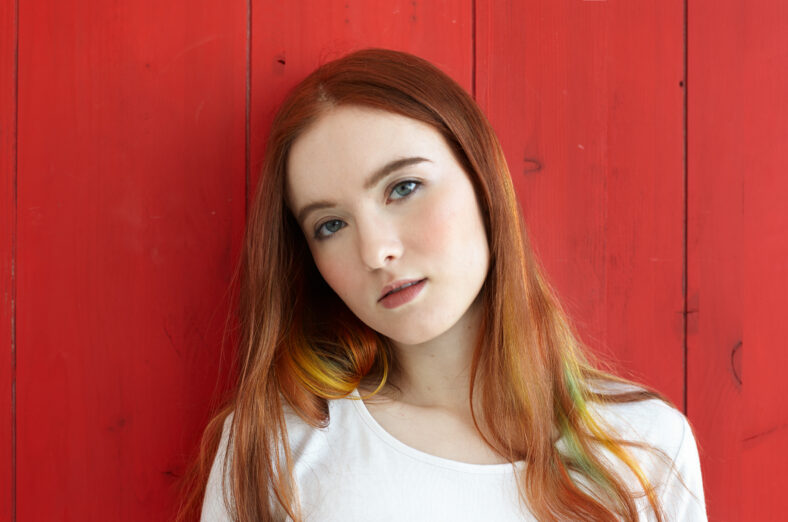10 Signs Of Emotional Baggage In A Relationship

Unresolved Emotions From The Past Can Affect Your Present

The following column is the opinion and analysis of the writer. Every single relationship comes with a bit of history, like previous heartbreaks or lessons learned. But when unresolved emotions from the past start affecting your present, it can create misunderstandings, tension, and distance between you and your partner.
Here Are 10 Signs Emotional Baggage Is Impacting Your Relationship

The thing about emotional baggage is that it’s not always obvious. Rather, it often shows up in subtle ways, and recognizing the signs is the first step toward healing and forming a healthier bond with your significant other. So, here are 10 key indicators that emotional baggage may be impacting your relationship.
1. It’s Hard To Fully Trust Your Partner

If you often second-guess your partner’s words or actions, even when they’ve given you no reason to doubt them, unresolved trust issues may be at play.
Betrayals by ex-partners, family, or even friends can create lingering fears that make it hard for you to believe someone’s being sincere. While that’s understandable, and taking some caution is only natural, excessively doubting your current partner will just strain your relationship and push them away.
2. You Overreact To Minor Problems

Do small issues like a forgotten text or a slight change in plans sometimes feel like major catastrophes and trigger a reaction that’s disproportionate to the situation? This often suggests emotional baggage is involved.
Your mind may subconsciously associate minor inconveniences with deeper fears, like abandonment, rejection, or betrayal. These unhealed emotional wounds can cause you to lash out, shut down, or otherwise respond irrationally to conflicts.
3. You’re Emotionally Unavailable

Keeping your emotions under lock and key could feel like self-protection, but it won’t bring you any closer to your partner. If you find it tough to open up and avoid expressing your feelings or engaging in deep conversations, it’s a red flag that past heartbreaks have left you guarded.
Building up emotional walls will prevent any true connection from forming. Healthy relationships depend on vulnerability to thrive.
4. You Read Too Far Into Your Partner’s Behavior

If every little disagreement or change in your partner’s mood sends you spiraling and considering worst-case scenarios, it’s likely a sign of emotional baggage.
You might overanalyze their tone in conversation, words over text, or general actions around the house and convince yourself that a minor shift signals a deeper problem. This usually stems from old relationship wounds, where broken trust or abandonment left you feeling on edge.
It’s human to recognize patterns and take note when they’re different, but constantly assuming the worst will only wreak havoc on both your mental health and your relationship.
5. You Romanticize Your Past Relationships

Even though hindsight is 20/20, it’s easy to reminisce about the past (and especially old relationships) with rose-colored glasses on. You may gloss over the fighting and tension, focusing only on the passion, laughs, and happy memories you and your ex once shared.
Glorifying a past relationship can be a coping mechanism, especially if you’re dealing with struggles in your current one. But holding onto an idealized version of old partnerships will just prevent you from embracing the present and appreciating what you have now as opposed to chasing a version of the past that never really existed.
6. You Compare Your Partner To Your Ex

On a similar note, it’s a red flag if you’re constantly comparing your current partner to your ex. No two people or relationships are ever the same, and each deserves to be valued for its own unique dynamics.
Whether you’re holding them to an unrealistic standard or expecting them to make up for your ex’s mistakes, these comparisons will put too much pressure on your relationship and make it feel transactional.
7. It’s Hard To Forgive

You could have unresolved pain from previous relationships seeping into your current one if it feels impossible to let go of small mistakes and forgive.
Holding onto grudges, whether over an offhand remark or a forgotten favor, points to deeper issues. Sometimes, it’s not really about what your partner did but rather about your old emotional damage that hasn’t fully healed. Try not to project your past hurt onto your present in order to break the cycle.
8. You Become Defensive During Conflicts

When you get into an argument, is your first instinct to shut down or deflect blame? Feeling personally attacked in these scenarios can suggest trauma from previous relationships or even childhood.
You may be hypersensitive to criticism, which makes you jump to the defensive instead of listening to your partner and trying to work through problems as a unit. Remember that you both are on the same team.
9. You’re Afraid Of Being Alone

If even just the thought of being single makes you anxious, then you’ve probably rushed into new relationships just to avoid loneliness. But while companionship can be comforting, jumping from one relationship to another without taking time to heal often means you’ll carry unresolved emotions forward.
This has the potential to cause unrealistic expectations, unhealthy attachments, or mistakes to repeat themselves. True emotional security comes from learning to be content on your own.
10. You Feel Insecure

Finally, if you’ve been hurt by an ex before, your self-esteem might’ve taken a real hit, making you feel unworthy of love or unsure of your partner’s feelings. These insecurities can manifest as jealousy, anxiety, or constant self-doubt.
Carrying the weight of old rejection or hurt makes it extremely difficult to trust the love your partner is offering you and your own worth. You have to rebuild your self-confidence and heal your personal wounds before you can build a strong relationship with someone else.
More About:Advice





